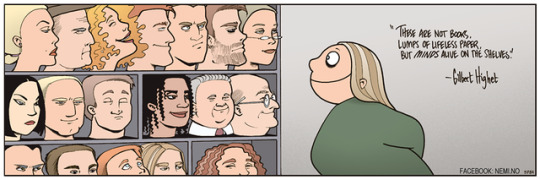#gilbert highet
Photo
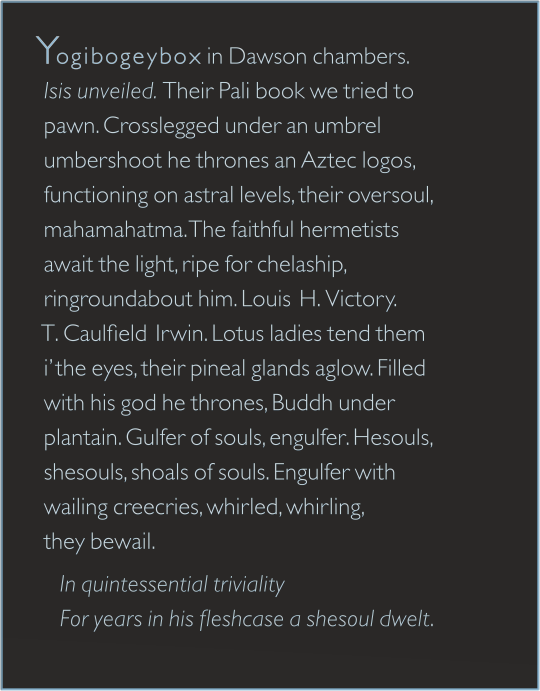
happy bloomsday
excerpt, symbolist prose, from james joyce’s Ulysses [the bodley head, london, 1967 (seventh impression, w/ corrections), p245]. «So, to take a complex personal emotion and to embody it in a symbolic figure of legend is to immortalize it, to make it art.» [gilbert highet, The Classical Tradition, oup, new york, 1949, p507].
set in gill sans light.
more from Ulysses: ‹ineluctable›, ‹dante roman›.
1 note
·
View note
Quote
Translation, that neglected art, is a far more important element in literature than most of us believe. It does not usually create great works; but it often helps great works to be created. In the Renaissance, the age of masterpieces, it was particularly important.
The first literary translation from one language into another was made about 250 B.C., when the half-Greek half-Roman poet Livius Andronicus turned Homer's Odyssey into Latin for use as a textbook of Greek poetry and legend. (Traditionally, it was about the same time that a committee of seventy-two rabbis was translating certain books of the Hebrew scriptures into Greek for the use of the Jews scattered beyond Palestine, who were forgetting Hebrew and Aramaic; but that version was not made for artistic purposes, and was not such a great milestone in the history of education.) The translation made by Livius Andronicus was a serious and partly successful attempt to re-create a work of art in the framework of a different language and culture. It was the first of many hundreds of thousands.
To the precedent set by Livius we owe much of our modern system of education. The Greeks studied no literature but their own: it was so various, original, and graceful that perhaps they needed nothing more. But the native Roman literature and Roman culture were rude and simple: so, from the third century B.C., Rome went to school with the Greeks. Ever since then the intellectual standards of each European nation have closely corresponded to the importance assumed in its education by the learning and translation of some foreign cultural language.
Gilbert Highet, from ‘Chapter 6. The Renaissance: Translation’ in The Classical Tradition: Greek and Roman Influences on Western Literature.
“Roman literature and Roman thought rose to their noblest when all educated Romans spoke and wrote Greek as well as Latin. The poetry of Vergil, the drama of Plautus and Seneca, the oratory and philosophy of Cicero, were not Roman, but, as we have often called them, a perfect synthesis which was Greco-Roman. When the western Roman empire ceased to know Greek, its culture declined and withered away. But after that, throughout the Dark Ages, culture was kept alive by the few persons who knew another language as well as their own: by the monks, priests, and scholars who understood not only Anglo-Saxon or Irish Gaelic or primitive French, but Latin too. With the spread of bilingualism through the Middle Ages and into the Renaissance, European culture deepened and broadened. The Renaissance was largely created by many interacting groups of men who spoke not only their own tongue but Latin too, and sometimes Greek. If Copernicus, Rabelais, Shakespeare, if Queen Elizabeth and Lorenzo de’ Medici had not known Latin, if they had not all, with so many others, enjoyed their use of it and been stimulated by it, we might dismiss Renaissance latinity as a pedantic affectation. But the evidence is too strong and unidirectional. The synthesis of Greco-Roman with modern European culture in the Renaissance produced an age of thought and achievement comparable in magnificence to the earlier synthesis between the spirit of Greece and the energy of Rome.”
1 note
·
View note
Text
The real duty of man is not to extend his power or multiply his Wealth Beyond his needs, but to enrich and enjoy his imperishable possession: his soul.
—Gilbert Highet
0 notes
Text
“Poetry is halfway between prose and music: it is sometimes like an intimate conversation, in words and phrases which need not be fully uttered, and sometimes like dancing and wordless music.”
— Gilbert Highet
0 notes
Text
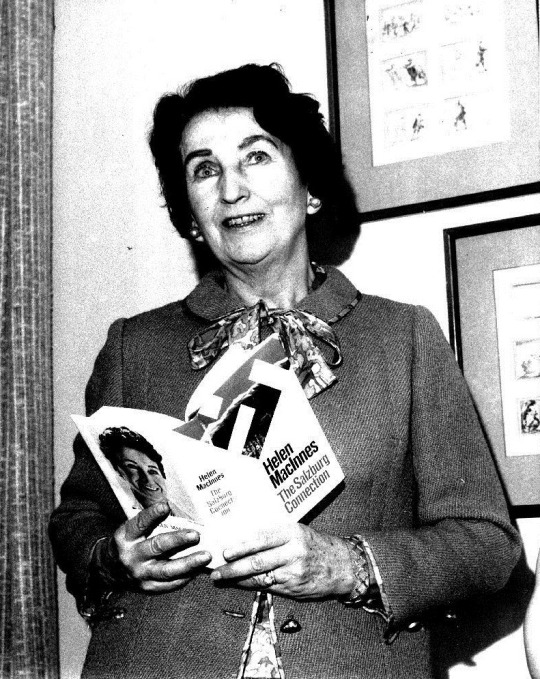

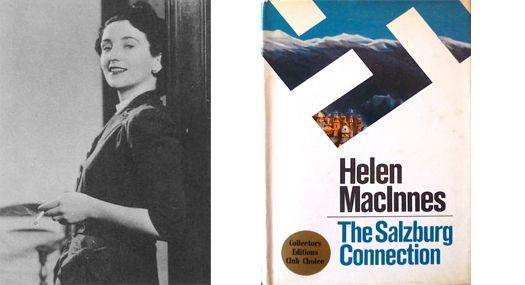
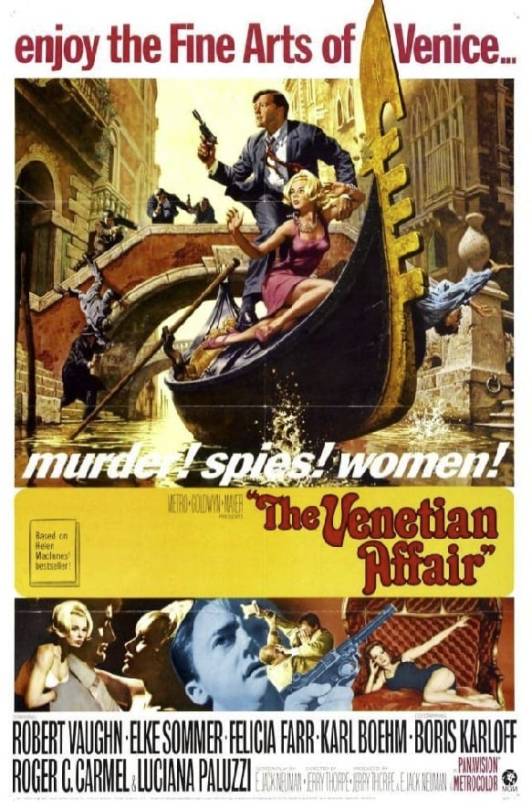
30th September 1985 saw the death in New York of Helen MacInnes, the Scottish-born author of espionage novels, some of which were made into films.
Helen Clark MacInnes was born on October 7th, 1907 in Glasgow to Donald MacInnes and Jessica McDiarmid, and had a traditional Scots Presbyterian upbringing. MacInnes graduated from the University of Glasgow in 1928 with an MA in French and German.
After a year of library work she entered the School of Librarianship of University College, London, in 1930, graduating the following year. In 1932 she married Gilbert Highet. Over the next several years they collaborated on a number of translations from German. In 1938, after Highet had taught for a year at Columbia University, he accepted a permanent post there, and the family settled in New York City.
A short time after moving to New York, MacInnes began her first book, Above Suspicion, a tale of espionage in Nazi Europe. It was an immediate success, widely praised for its suspense and humour, and it was made into a motion picture in 1943. Assignment in Brittany followed in 1942 and was also made into a movie the following year. While Still We Live and Horizon were both suspenseful tales of World War II. Friends and Lovers, a love story, was followed by a series of thrillers concerning international intrigue and Cold War tension, including Neither Five nor Three, Pray for a Brave Heart, Decision at Delphi , The Venetian Affair, Message from Málaga, and Prelude to Terror. Her final book, Ride a Pale Horse, appeared in 1984.
While MacInnes’ career was not dotted with many awards, although she did win the 1966 Iona University Columbia Prize for Literature. This is most directly related to her influence in the state of New York, seeing as her first sixteen novels (those written up to 1966) each spent time on the international best sellers’ list. Her books were frequently translated and reissued in several languages.
Critics and readers alike noted MacInnes’s skillful and credible portrayal of espionage and the characters involved in it. She credited her success to thorough research and her interest in international politics.
While researching MacInnes’s I noticed that according to IMDb, the Internet Movie Database, a remake of the 1966 film The Venetian Affair is in the offing, I wonder if it will be something like The Bourne movies and start a resurgence in her work?
17 notes
·
View notes
Text

Richard K. Munro
I MET RUSSELL KIRK'S WIDOW ANNETTE and we talked about GILBERT HIGHET and she showed me the many Highet books in Kirk's library. She said her husband greatly admired Highet.
At the back of every discussion of the good society lies this question, What is the object of human life? The enlightened conservative does not believe that the end or aim of life is competition; or success; or enjoyment; or longevity; or power; or possessions. He believes, instead, that the object of life is Love. He knows that the just and ordered society is that in which Love governs us, so far as Love ever can reign in this world of sorrows; and he knows that the anarchical or the tyrannical society is that in which Love lies corrupt. He has learnt that Love is the source of all being, and that Hell itself is ordained by Love. He understands that Death, when we have finished the part that was assigned to us, is the reward of Love. And he apprehends the truth that the greatest happiness ever granted to a man is the privilege of being happy in the hour of his death.--Russell Kirk, 1954
3 notes
·
View notes
Text
A good teacher is determined person.
(Gilbert Highet)
8 notes
·
View notes
Text
A good teacher is a determined person.
— Gilbert Highet
0 notes
Photo


( "she came from planet claire, georgia o'keeffe" via nightcage / via )
Strange fish.
"All spectres now resume their dim domain" --Owen Meredith
Red room.
"Mirage
The hope I dreamed of was a dream,
Was but a dream; and now I wake,
Exceeding comfortless, and worn, and old,
For a dream's sake.
I hang my harp upon a tree,
A weeping willow in a lake;
I hang my silent harp there, wrung and snapt
For a dream's sake.
Lie still, lie still, my breaking heart;
My silent heart, lie still and break:
Life, and the world, and mine own self, are changed
For a dream's sake."
--Christina Rossetti
Kaitag embroidery.
"...it is always prudent to consult Persian dictionaries when reading Ghalib; he often uses words of Persian origin with their original Persian meaning rather than, or in addition to, the adapted Urdu meanings of the same words." --Aijaz Ahmad, Ghazals of Ghalib (1971)
"One of his [Milton's] strangest devices is to use existing English words, not in their current sense, but in the sense which their Latin root possesses." --Gilbert Highet, The Classical Tradition (1949). Highet goes on to cite "pontifical" used as 'bridge-building', "astonished" as 'thunder-struck', and "exploded" as 'hissed off'...
Mallarmé probably can be added to this list (& certainly Celan), which i think i will call etymonarchical mode, as well.
Three Destinations.
0 notes
Text
(like ig i just feel as though oxford-to-ivy voices like gilbert highet need a touch more unpacking if we’re serious abt not just continuing to hand down all the traditional -isms of classics?
dgmw he’s not even particularly egregious afaik but that one paragraph alone was like. why would you [highet] automatically regurgitate catullus’ sneeringly vitriolic write-off of his ex [simul complexa tenet trecentos, &c] as if it were for sure objectively correct. why a frenchman. [like best case scenario it’s the so-called gender-neutral masculine but i tend to suspect it’s a case of ‘male narrator can only imagine male narrators.’ men kiss women. men write about women. women make for variably-deserving foci of this male subjectivity. this cishet binarism is boring as an analytical framework and i want out.]
and then of course you go to wikipedia and it’s all
“History is a strange experience,” [Highet] wrote in the introduction to an essay on Byzantium. “The world is quite small now; but history is large and deep. Sometimes you can go much farther by sitting in your own home and reading a book of history, than by getting onto a ship or an airplane and traveling a thousand miles. When you go to Mexico City through space, you find it a sort of cross between modern Madrid and modern Chicago, with additions of its own; but if you go to Mexico City through history, back only 500 years, you will find it as distant as though it were on another planet: inhabited by cultivated barbarians, sensitive and cruel, highly organized and still in the Copper Age, a collection of startling, of unbelievable contrasts.”
as if “inhabited by cultivated barbarians, sensitive and cruel,” weren’t an equally good description of highet’s own world, or of ours! not to mention: why copper age. why this narrative of like. european-defined Escalator of Progress. why is he pontificating way beyond his wheelhouse abt 15th-c. mexico—ex cathedra vniversitatis colvmbiae—as a preface to talking abt a totally unrelated place and time. [like i get why but i always feel dubious abt the writing approach that does this, like, opening quick-dip for Flavor into some ~interestingly exotic milieu~ that gets summarized briefly and reductively if not incorrectly.] anyway i just think like. worth squinting at a lil more visibly, maybe?)
#anyway it’s whatever we all focus on what we focus on#but i just personally feel strongly abt like. the importance of actively indicating what i do and don’t endorse#and like. drawing in some little medieval-style middle-finger manicules to make sure ppl notice#long post#(ish)#ktema terpnon#gilbert highet
9 notes
·
View notes
Photo
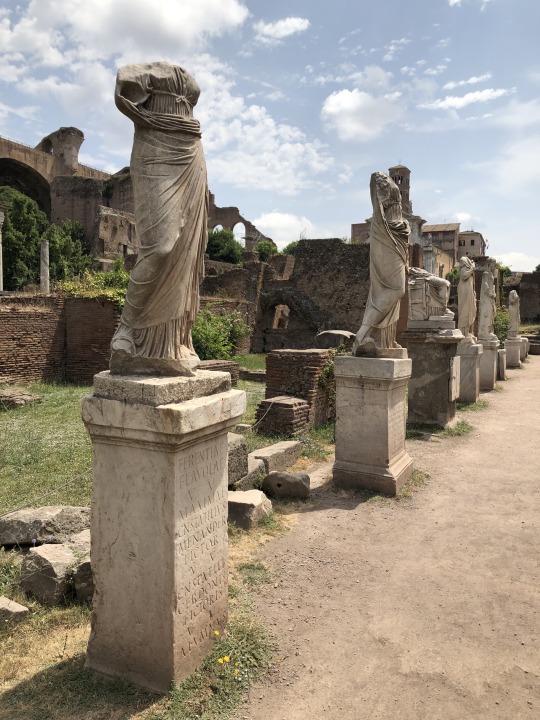
“Catullus said this was his home, far more than his northern birthplace. Vergil shunned it because he shunned crowds and hated pomp; yet he loved to dwell on the city in his imagination, and in his greatest poem he portrayed it both as a simple prehistoric settlement and (in anticipation) as the imperial home of Augustus the peacemaker. Propertius and Tibullus both loved its adventurous gaiety, and Ovid’s Art of Love is an amorist’s guide to the metropolis. Horace formed his talent as a satirist and philosopher while walking through its busy streets, and still, even when withdrawn in his country seclusion, thought of his friends in the city with pleasure. Juvenal described its mansions, its temples, and its slums with fascinated repulsion. These and many other Roman poets communicate to us the deathless nobility not only of Italy but of its captain city, Rome. Here the history and poetry of antiquity become tangible. The tomb of Romulus; the Sacred Road; the precinct of Vesta; the Senate house; the towering arches of the imperial palaces: here are three thousand years of history. The stones are dead. The history is alive, running through our hearts and through our minds.” --Gilbert Highet, Poets in a Landscape
10 notes
·
View notes
Quote
The baroque period had concentrated chiefly on classical myth and history, human psychology, and certain fundamental philosophical problems; but now vast new fields were opened up. Superficial observers are therefore apt to interpret the revolutionary period as one in which the interest of poets was entirely turned away from the classics towards something else. But, as their lives show, most of the revolutionary writers loved and understood classical literature better than their predecessors.
We should therefore revise the shallow conception of this period
as one of reaction against classical poetry and classical standards. Most conceptions of history, art, or psychology which are based on action-and-reaction are shallow: they are patterns of thought borrowed from physics, and from a physics which is now known to be inadequate. As soon as the sciences completely free themselves from the domination of physics, it is likely that organic chemistry will provide far more illuminating metaphors to describe the activities of the human spirit. History is not like a clock ticking or a pendulum swinging. Instead of viewing this age as one of reaction, let us describe it as one of expansion and exploration.
It could even be called an explosion. The energies it set free were at first uncontrollable. The symbol of the baroque period was a pearl, straining outwards under the pressure of the forces which its smooth but irregular surface contained. The revolutionary age was the explosion of the pearl. Its activity was not conflict, and tension, and difficult control, but release. The forces it released, after issuing in startling cruelties, terrible disasters, amazing beauties, and grand spiritual aspirations, reformed in a new shape and became subject to new controls. But the form of the old age was gone for ever.
Gilbert Highet, from ‘Chapter 19. The Time of Revolution: I. Introduction’ in The Classical Tradition: Greek and Roman Influences on Western Literature.
1 note
·
View note
Photo

set in rotis semi sans—vide ‹weighty words›.
4 notes
·
View notes
Photo
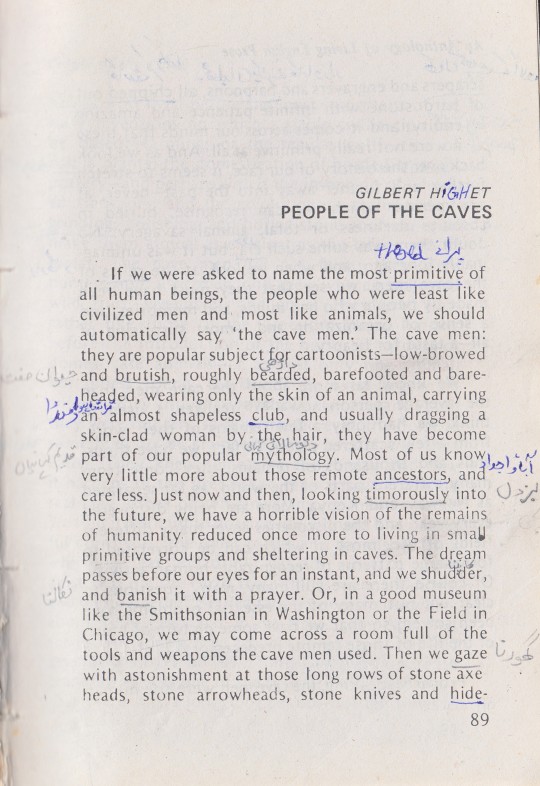
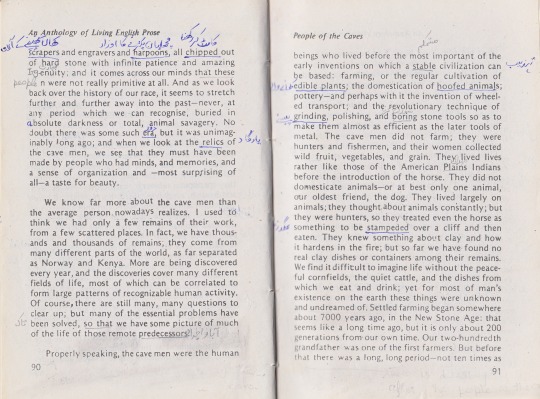
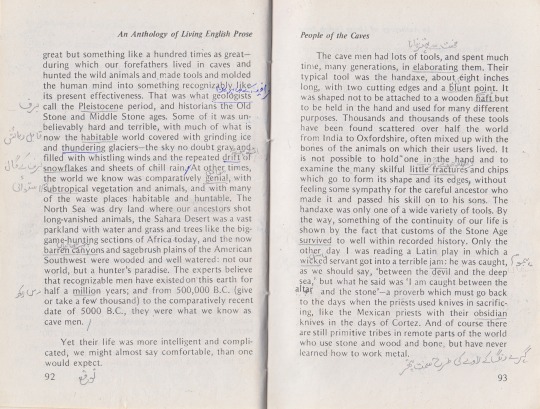
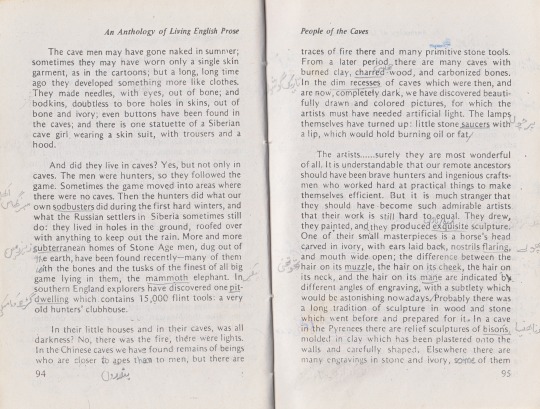


#PEOPLE OF THE CAVES#PEOPLE OF THE CAVES by GILBERT HIGHET#Gilbert Arthur Highet#Gilbert Highet#KABIR STREET URDU BAZAR LAHORE#ILMI KITAB KHANA#M. ISMAIL BHATTI#AN ANTHOLOGY OF LIVING ENGLISH PROSE#Muhammad Ismail Bhatti
0 notes
Photo
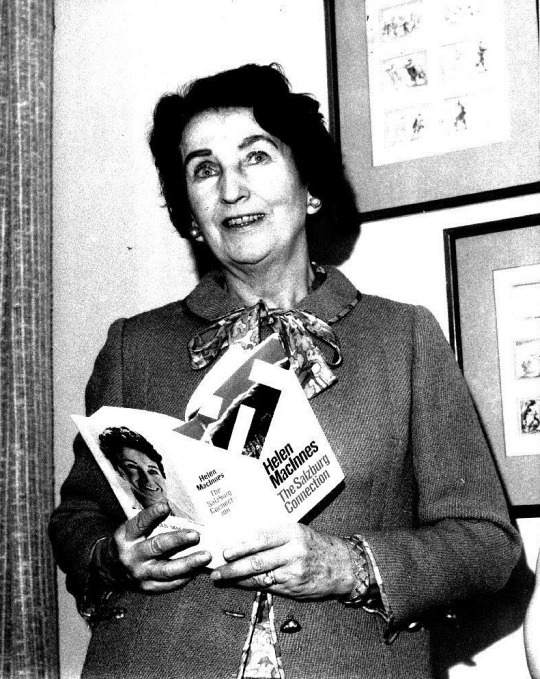
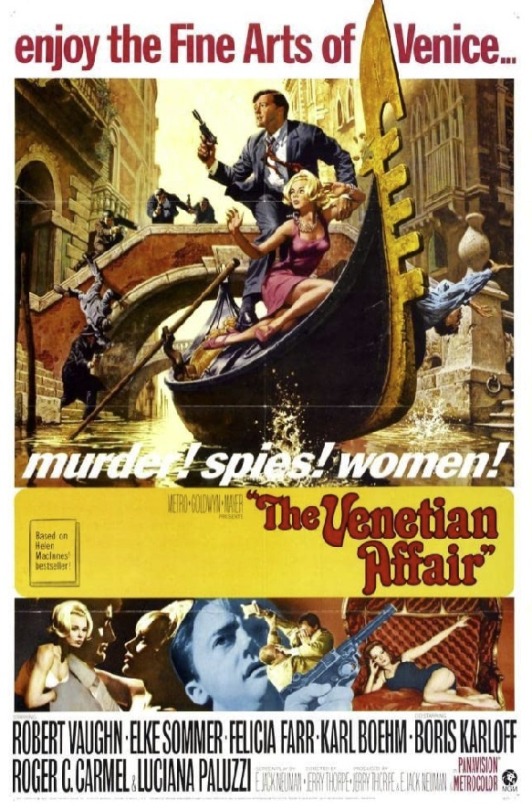

30th September 1985 saw the death in New York of Helen MacInnes, the Scottish-born author of espionage novels, some of which were made into films.
Helen Clark MacInnes was born on October 7th, 1907 in Glasgow to Donald MacInnes and Jessica McDiarmid, and had a traditional Scots Presbyterian upbringing. MacInnes graduated from the University of Glasgow in 1928 with an MA in French and German.
After a year of library work she entered the School of Librarianship of University College, London, in 1930, graduating the following year. In 1932 she married Gilbert Highet. Over the next several years they collaborated on a number of translations from German. In 1938, after Highet had taught for a year at Columbia University, he accepted a permanent post there, and the family settled in New York City.
A short time after moving to New York, MacInnes began her first book, Above Suspicion, a tale of espionage in Nazi Europe. It was an immediate success, widely praised for its suspense and humour, and it was made into a motion picture in 1943. Assignment in Brittany followed in 1942 and was also made into a movie the following year. While Still We Live and Horizon were both suspenseful tales of World War II. Friends and Lovers, a love story, was followed by a series of thrillers concerning international intrigue and Cold War tension, including Neither Five nor Three, Pray for a Brave Heart, Decision at Delphi , The Venetian Affair, Message from Málaga, and Prelude to Terror. Her final book, Ride a Pale Horse, appeared in 1984.
While MacInnes’ career was not dotted with many awards, although she did win the 1966 Iona University Columbia Prize for Literature. This is most directly related to her influence in the state of New York, seeing as her first sixteen novels (those written up to 1966) each spent time on the international best sellers’ list. Her books were frequently translated and reissued in several languages.
Critics and readers alike noted MacInnes’s skillful and credible portrayal of espionage and the characters involved in it. She credited her success to thorough research and her interest in international politics.
While researching MacInnes’s I noticed that according to IMDb, the Internet Movie Database, a remake of the 1966 film The Venetian Affair is in the offing, I wonder if it will be something like The Bourne movies and start a resurgence in her work?
12 notes
·
View notes
